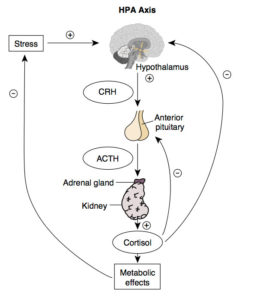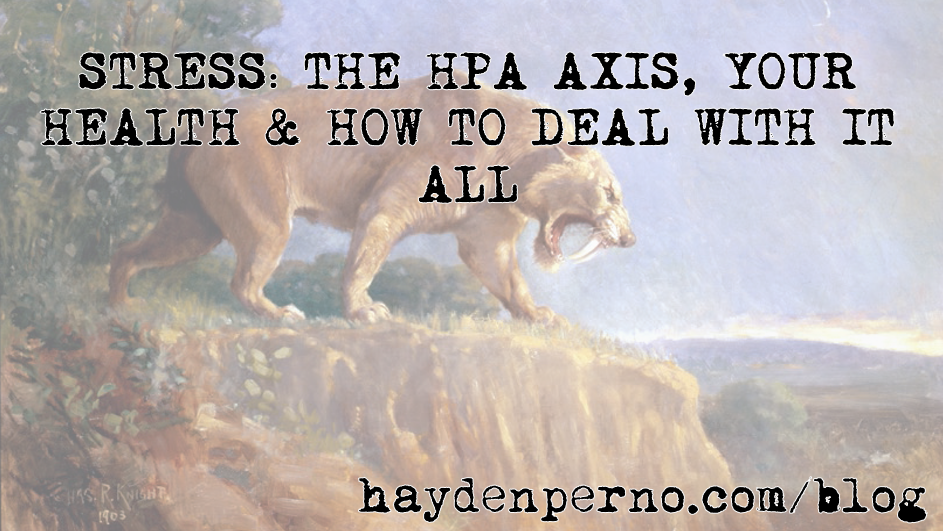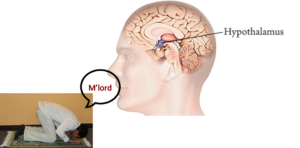Stressed? Anxious? Always strung up? Tired? Run-down? Overworked? Underpaid? Does it sound like I’m trying to sell you something? Am I asking too many questions? I am? Oh. Let’s cut to the chase then.
Look, we all get stressed. Whilst some fall into the stress “hole” quite easily, others seem to always live in some sort of Zen-like state, regardless of what’s going on in their lives. Handling or dealing with stress on the other hand, is a whole other ball game. And in one way, it’s almost like any of your other regular emotions: A habit. One that we can get so used to accessing, that we actually become completely naïve to the fact that we are doing so.
If, however, we are aware of our emotional state, it can allow us to be more in control of ourselves, and on the more extreme spectrum, can deny us from falling victim to destructive modes like abuse, self-harming, or even suicide. It can also allow ourselves to embrace our emotions, and a prime example of this is the release of a chemical known as leucine-enkaphalin that works with pain signaling, reducing the darker mood we may have fallen into.
Although, in saying all of this, whilst we may not always have complete control over everything in our lives, we do always have a choice as to how we deal with anything and everything that is thrown at us. Even though there are things going on inside of us that we don’t have any say over.
THE BRAIN AND ITS AMAZING FEATS
You know that weirdly-shaped squishy, ridged, grooved, and folded blob sitting in your skull? Well, there’s some serious things going on inside there that you probably never even think about. Things like the activation of areas that enable you to read and understand this very sentence, whilst also flawlessly breathing, blinking, staying alert to your surroundings, and digesting that delicious last meal you had.
How is all of this possible?, you may ask. It has to do with our autonomic nervous system, an amazing piece of machinery. It is constantly on the look out to be influenced by what you’re doing, where you are, and even who you’re with. Say for instance you come face-to-face with a sabretooth tiger, the sympathetic component of the system kicks in, resulting in increased awareness, heart rate, respiratory rate, and overall, the ability for you to either fight that S.O.B or run the hell away from it. (Option B is ideal).
If you happen to go somewhere dangerously cold, your skins thermoreceptors sense the temperature and go about signaling to your brain, telling it about the danger. The brain (mainly the hypothalamus, which we will get to in just a minute), then analyses if the thermoreceptors are telling something worth noting, and responds accordingly. In this case, it goes about redirecting blood flow to areas of your body that don’t need as much, like your feet, and towards areas that do, like your heart and lungs.
As you can see, there sure is a lot going on when it comes to the mechanisms of our body and its brain, and that’s only two very brief examples. But, enough of that. Let’s get back to the brain. And in particular, the region of it that first secretes the tropic hormone cortisol releasing hormone (or, CRH).
THE HYPOTHALAMUS
You can think of this hypothalamus as the lord of hormone delegation. It is the main hub inside all of us that receives signals from all regions of our body, and delegates the particular hormone response required. Take that sabretooth tiger you were fighting earlier on, after receiving sensory information, such as visual, auditory, or that massive slash on your thorax that’s causing you to be in intense death-imminent pain, and relating it with all your memories and knowledge, the signal is then sent to a region in the brain known as the stria terminalis (big words, I know, but stick with me).
Once the signal hits this stria terminalis, it terminates (duh) and activates the HPA axis.
The events that follow this lead to you responding accordingly to the stimuli, and if the hypothalamus (the big dog, remember?) thinks that yes, a sabretooth tiger attack is a stressful event, CRH is released. CRH then goes on to hit the pituitary gland, causing a secretion of ACTH, which then goes on to hit the adrenal cortex and cause a secretion of the infamous cortisol hormone.

Quite a long chain of events, I know, but this secretion of everybody’s favourite stress hormone (cortisol), results next in, yep, you guessed it, an increase in stress levels. The increase in stress levels boosts areas of our body that, for example, enable us to get away from that sabretooth, and once the threat is over, the very presence of it signals back to the hypothalamus, telling it to stop releasing CRH. This then eventually leads to the decreasing or absolute halting of cortisol secretion.
TOO MUCH OF A GOOD THING…
Just like that honey macadamia ice-cream that you never should’ve bought because you can’t stop eating it and you keep going back to your fridge for more even though you know you shouldn’t, too much stress can be a bad thing. So bad in fact, that the more we stress about things – like that fight with a colleague, dealing with adversity, or facing a huge workload – the secretion of cortisol becomes so high, that the feedback signaling to the brain to stop secretion of CRH, becomes damaged, resulting in more and more cortisol being released, and therefore more and more stress.
After some time, the increased amount of stress then leads to actual neuronal damage within sites of the brain like the hippocampus and amygdala. This unfortunately can lead to impaired memory, emotional control, and of course can then result in more and more stress and more and more anxiety.
A harsh and very vicious cycle, indeed. But, it’s not the end of it all if this does happen.
STOP STRESSING ABOUT STRESSING AND DEAL WITH IT
So, how can we deal with stressor stimuli allowing for the reduction of the possible scenario of damaged neurons within our brain then? How can we obtain that more Zen-like sought after state and remain in control of our emotions and lives?
Yeah, I don’t know why she didn’t just get changed before sitting on that wet sandy beach.
Like most things, it’s both a simple answer and a complicated one all rolled in one. And whilst I could probably list a 101 alternative options for helping stress levels and/or controlling them, let’s go through my top three favourite ones that work for me.
#1 – ME TIME
Seek out “me time” at least twice a week. Whether it be going for a swim, a ride, a bushwalk, reading a book, working out, baking, everyone should have something in their life that is more than just a hobby, and acts more as a release. Getting much needed me time as much as possible, will only help benefit you and your health in the long run.
#2 – MONK IT
Step back and reassess. When something out of your control hits you like the heat when you stick your head eagerly into an oven to check on your food baking, take a step back before reacting without thought. Reassess the situation. A lot of the time, instead of reacting immediately to something, use a wise monk mentality and don’t let it affect you – especially if it’s out of your control. Of course you shouldn’t just brush everything off to the side, but by stepping back and taking a moment to gather your thoughts, your stress levels will like you for it, and your brain will be able to think things over, enabling you to be more in control of the situation and overall outcome.
#3 – BREATHE
To combat the sympathetic state that comes about via a cortisol influx, we can actually access our opposite state known as our parasympathetic state, via a few small tricks. This is a great state to be in when looking at performing vital functions like digestion and sleeping. Which I hope are two of your hobbies.
Breathing has been around since the dawn of the century (at least), and it truly is an amazing way to access your parasympathetic state. But I don’t just mean that typical regular breathing you’re doing right now *insert eye roll*. That’s for rookies. The real style of breathing that can help you lower your stress levels and lead to an overall healthier you, can be done by the following four steps:
1. While you’re lying in bed tonight, and after you do your usual social media checkup before you set your alarm, plug your phone in, and place it on your bedside table, lay flat on your back with your arms by your side.
2. From there, close your eyes and begin inhaling as deep as you can through your nose, in a nice relaxed tempo of 5-10 seconds.
3. Once you reach your maximum air intake, purse your lips, and exhale as slow as you inhaled out through your mouth.
4. Perform 10 of these before going to sleep, and at any time of the day where you feel as though you getting out of control and your stress levels are rising.
Try implementing one or all of these above and I guarantee that you will feel so much differently immediately next time an uncontrollable stressor comes your way. Thanks for reading.







